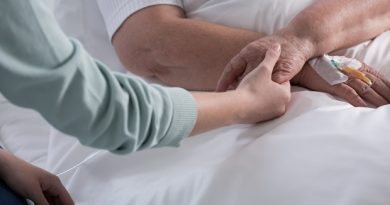Report shows mental health care gaps for women veterans

Issues of identity, male-dominated branding and apprehension that their needs will go unmet are among the reasons women are not accessing veterans’ mental health support, according to new research being discussed at a conference in Cambridge.
The report, I don’t feel like that’s for me: Overcoming barriers to mental healthcare for women veterans, was carried out by the Center for Military Women’s Research (CMWR) at Anglia Ruskin University (ARU), to investigate the low numbers of ex-servicewomen engaging with veteran-specific mental health services.
The report was presented at the CMWR’s inaugural conference in Cambridge, which features international perspectives on sexual violence in the military. This conference is the first in the UK to focus on this topic.
There are approximately a quarter of a million female veterans in England and Wales, making up 13.6% of the veteran community of 1.85 million, but the report found many “fall through the gaps” between civilian and military mental health provision.
The researchers interviewed 48 women veterans in England who had experienced a mental health challenge within the past five years, along with 12 mental health professionals. Guidance for working with women veterans in mental health services was co-created with women veterans.
The report found mental health challenges were often not solely related to combat or deployment experiences, and identified several reasons why women veterans may not engage with veteran-specific mental health support, including:
- Not identifying with the term ‘veteran’
- A lack of awareness of available support for veterans
- A perception that veteran services did not understand the needs of women
- Male-dominated service branding
- Practical barriers associated with care responsibilities
One Royal Air Force veteran, who served between 1989 and 1996, said, “It was only recently that I viewed myself as a veteran, so I kind of dismissed anything to do with the military in terms of accessing any support”
An Army veteran, who served from 1999–2002, added she felt military support organizations were “not going to be able to understand me talking about my sexual assault, sexual harassment, or discrimination. And it would almost feel like that organization as a whole would be rolling their eyes on the end of the phone.”
Principal investigator Dr. Lauren Godier-McBard, Associate Professor and co-director of the Center for Military Women’s Research at Anglia Ruskin University (ARU), said, “Our report found that women veterans experienced mental health challenges for many reasons related to both their military service and transition into civilian life, from facing discrimination or sexual violence in their service role, to struggling with identity or caring responsibilities.
“It appears from the interviews we carried out that many ex-servicewomen feel they fall through the gaps between mental health services for civilians and military veterans. Many did not identify with the word ‘veteran,’ considering it to be a male label or preferring to identify with the various other roles in their life, such as being a parent.”
Lead author of the report, Abigail Wood, Research Fellow at the Center for Military Women’s Research at ARU, added, “To encourage women to approach services in the first place, improving the visibility of women in service branding and materials was seen as critical. Clinician understanding of both the military lifestyle and women’s unique military experiences was considered important, as was giving women veterans the choice of clinicians based on their military background and gender, and the option of women-only treatment groups.
“There are plenty of services that offer support to women veterans, and hopefully this report will assist those services and veterans themselves to ensure that more people reach out for mental health help.”
Patricia Price, peer researcher at ARU and Army veteran, said, “What all women veterans want is to be seen and heard, without pre-judgment, without a tick box and without being seen as the cause of the issue they need support to resolve. We are equally as deserving of support, recognition and respect as each and every other professional member of the Armed Forces and each and every other Armed Forces Veteran is.
“Women in the Armed Forces are entitled to a successful and fulfilling veteran life. We simply must do better for them.”
Source: Read Full Article



